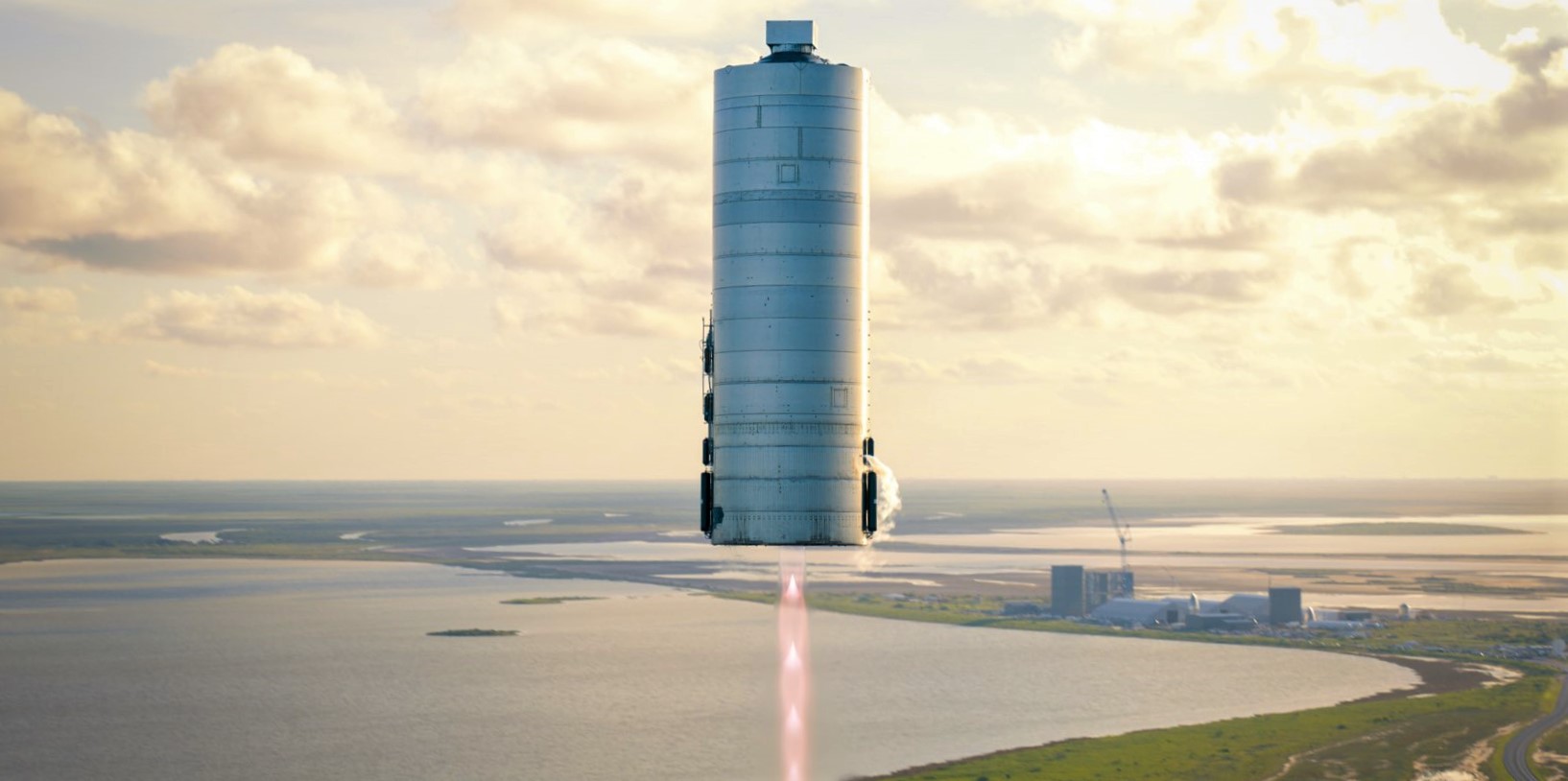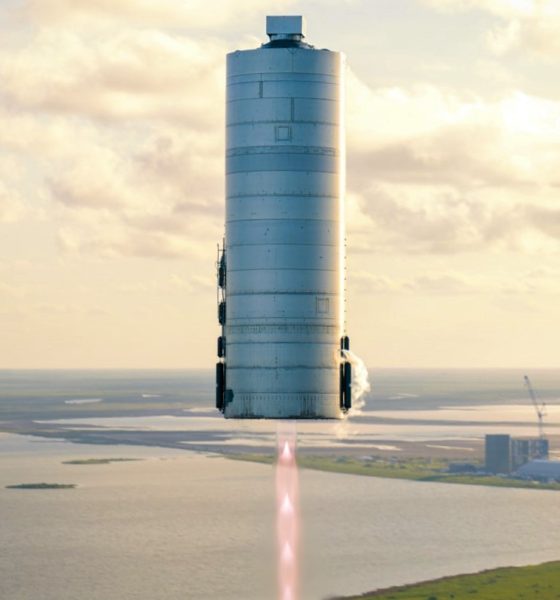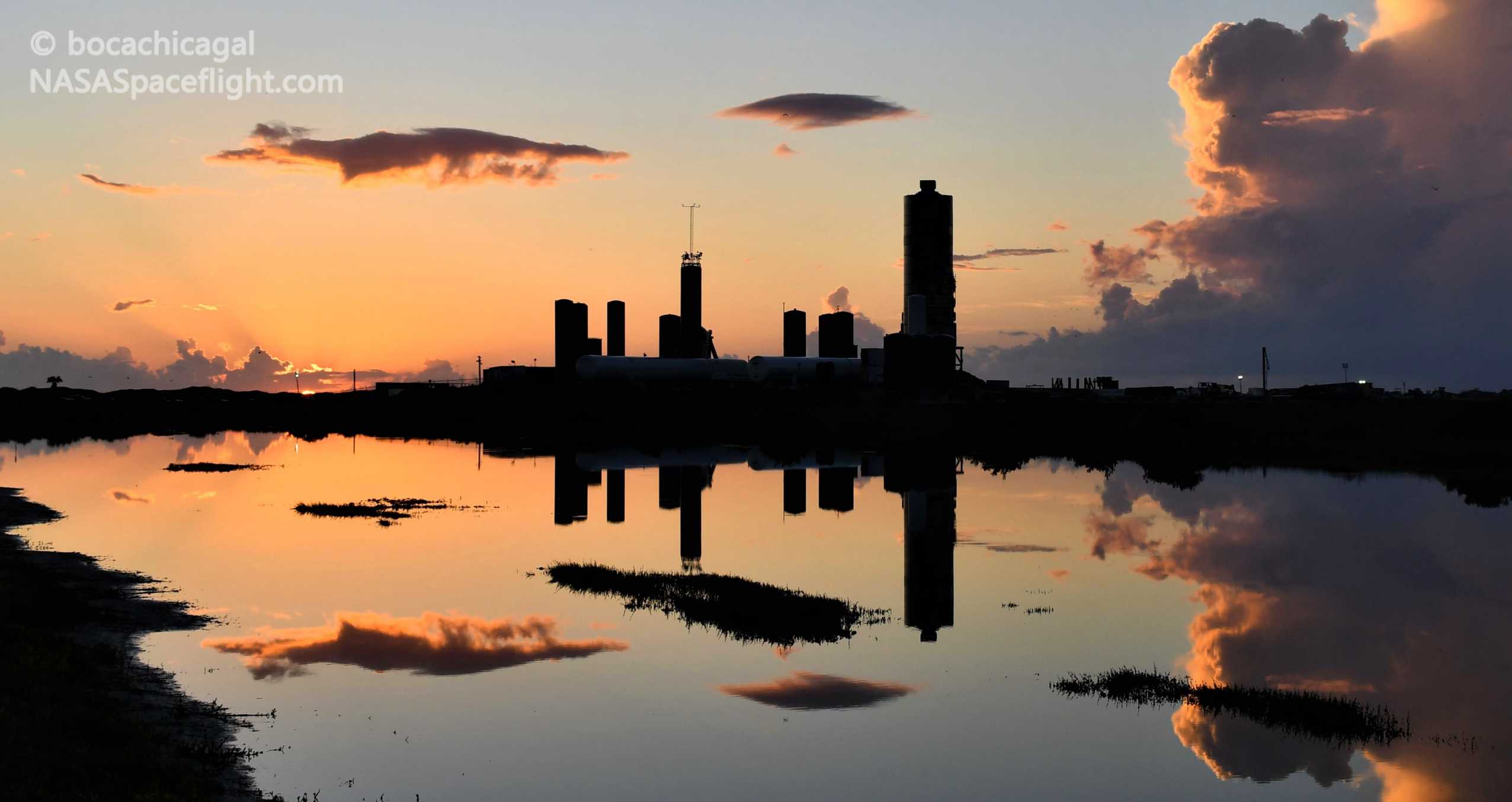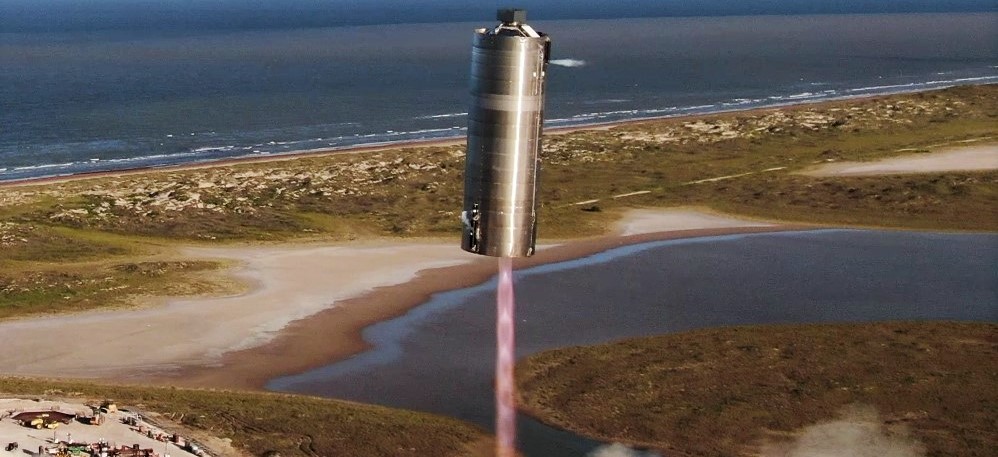

News
SpaceX is hiring a Spaceport resort developer for its Texas rocket factory
SpaceX has big plans to ferry travelers to Mars in the near future, and part of that venture looks to include luxury accommodations while customers spend time with the company on Earth. A recent job board posting for a “Resort Development Manager” has come to light, specifically referring to a project at the launch provider’s Boca Chica Village location in Texas.
“SpaceX is committed to developing this town into a 21st century Spaceport. We are looking for a talented Resort Development Manager to oversee the development of SpaceX’s first resort from inception to completion,” the posting states. Notably, SpaceX is looking for candidates with experience in “high end brand luxury development,” which is perhaps a nod towards the types of customers the company expects to attract.
A small coastal community located on Texas’s southernmost tip, Boca Chica Village is where SpaceX has been developing and testing the company’s Mars-bound rocket named Starship. Facility development at the site has gone quite fast over the last few months, as is the usual Elon Musk-led company fashion, featuring new semi-automated welding machines, upgraded production equipment, and two massive sprung structures (i.e. tents). A ramp in hiring also began in February this year, including a career day to staff production shifts for 24/7 operations.

SpaceX’s rocket factory in Texas has gained a bit of notoriety since moving into the area, specifically when a Starship prototype (SN4) exploded following a static fire test in May this year. However, it looks as though most of the (literal) kinks have been worked out, culminating in a picture-perfect hop test last week. This latest test was preceded by several several prototype and tank tests, and SpaceX is now quickly moving forward with yet another prototype (SN8) build from a different steel alloy altogether.
The Texas and Florida-based rocket maker specifically labeling its new project as a Spaceport may be related to a goal Musk previously referenced. “SpaceX is building floating, superheavy-class spaceports for Mars, moon & hypersonic travel around Earth,” the CEO stated on Twitter in June. He was replying to a tweet describing yet another job board posting, this one for “Offshore Operations Engineers” to work at the Texas site.

SpaceX published concepts for floating launch facilities in 2017 which measured at least 300m (1000 ft) long and about 100m (330 ft) wide, and they are assumed to be the floating ports in question. The size of the intended rockets to be serviced on the pads would also hint towards being several miles off shore for safety purposes. But in another interesting difference, including the “Resort” in the most recent job description may further indicate either an expansion to the rocket island concept or a separate project entirely.
SpaceX is hiring a “Resort Development Manager” to develop the Boca Chica Village in Texas “into a 21st century Spaceport” and the company’s first resort. https://t.co/AEfUaCIVGr pic.twitter.com/rhJqq2rnIV
— Michael Sheetz (@thesheetztweetz) August 10, 2020
A comparable destination may be Spaceport America, the first purpose-built commercial spaceport in the world, located in New Mexico. That facility comprises 6,000 square miles of restricted airspace, a 12,000 foot runway, and vertical launch complexes to support multiple customers needing aerospace testing and launch capabilities. Visitors may only come for guided tours of the Spaceport, however, as it’s closed off to the public for a variety of legal and security reasons. If SpaceX’s Spaceport has similar restrictions, perhaps the Resort will be for space-bound customers and business relations only.
Every autumn since the 2016 International Astronautical Congress (IAC), Musk has presented an annual update on the status of SpaceX’s next-generation Starship launch vehicle. The tradition looks to be continued this September, as indicated in a recent tweet by the CEO, despite challenges brought on by the Coronavirus pandemic. Details about future Resort plans will hopefully be provided at that time.

News
Tesla ships out update that brings massive change to two big features
“This change only updates the name of certain features and text in your vehicle,” the company wrote in Release Notes for the update, “and does not change the way your features behave.”

Tesla has shipped out an update for its vehicles that was caused specifically by a California lawsuit that threatened the company’s ability to sell cars because of how it named its driver assistance suite.
Tesla shipped out Software Update 2026.2.9 starting last week; we received it already, and it only brings a few minor changes, mostly related to how things are referenced.
“This change only updates the name of certain features and text in your vehicle,” the company wrote in Release Notes for the update, “and does not change the way your features behave.”
The following changes came to Tesla vehicles in the update:
- Navigate on Autopilot has now been renamed to Navigate on Autosteer
- FSD Computer has been renamed to AI Computer
Tesla faced a 30-day sales suspension in California after the state’s Department of Motor Vehicles stated the company had to come into compliance regarding the marketing of its automated driving features.
The agency confirmed on February 18 that it had taken a “corrective action” to resolve the issue. That corrective action was renaming certain parts of its ADAS.
Tesla discontinued its standalone Autopilot offering in January and ramped up the marketing of Full Self-Driving Supervised. Tesla had said on X that the issue with naming “was a ‘consumer protection’ order about the use of the term ‘Autopilot’ in a case where not one single customer came forward to say there’s a problem.”
This was a “consumer protection” order about the use of the term “Autopilot” in a case where not one single customer came forward to say there’s a problem.
Sales in California will continue uninterrupted.
— Tesla North America (@tesla_na) December 17, 2025
It is now compliant with the wishes of the California DMV, and we’re all dealing with it now.
This was the first primary dispute over the terminology of Full Self-Driving, but it has undergone some scrutiny at the federal level, as some government officials have claimed the suite has “deceptive” names. Previous Transportation Secretary Pete Buttigieg was one of those federal-level employees who had an issue with the names “Autopilot” and “Full Self-Driving.”
Tesla sued the California DMV over the ruling last week.
News
Tesla workers push back against Giga Berlin unionization
“IG Metall did not succeed in Giga Berlin‘s works council election earlier today. The union share was reduced from nearly 40% in 2024 to 31% in 2026! This is a clear message by the Giga Berlin team towards an independent co-determination! The list called Giga United, led by the current chairwoman, Michaela Schmitz, received the most votes with more than 40%! Good news for Giga Berlin!”

Tesla workers pushed back against unionization efforts at Gigafactory Berlin, and over the past few years, there has been a dramatic decrease in interest to unionize at the German plant.
Gigafactory Berlin Plant Manager André Thierig announced on Wednesday that IG Metall, the European union group, saw its share reduce from 40 to 31 percent in 2026 as employees eligible to vote on the issue. Instead, the Giga Berlin team, known as Giga United, received the most votes with more than 40 percent.
BREAKING! 🚨
IG Metall did not succeed in Giga Berlin‘s works council election earlier today. The union share was reduced from nearly 40% in 2024 to 31% in 2026!
This is a clear message by theGiga Berlin team towards an independent co-determination!
The list called Giga…
— André Thierig (@AndrThie) March 4, 2026
Thierig gave specific details in a post on X:
“IG Metall did not succeed in Giga Berlin‘s works council election earlier today. The union share was reduced from nearly 40% in 2024 to 31% in 2026! This is a clear message by the Giga Berlin team towards an independent co-determination! The list called Giga United, led by the current chairwoman, Michaela Schmitz, received the most votes with more than 40%! Good news for Giga Berlin!”
There were over 10,700 total employees who were eligible to vote, with 87 percent of them turning out to cast what they wanted. There were three key outcomes: Giga United, IG Metall, and other notable groups, with the most popular being the Polish Initiative.
The 37-seat council remains dominated by non-unionized representatives, preserving Giga Berlin as Germany’s only major auto plant without a collective bargaining agreement.
Thierig and Tesla framed the outcome as employee support for an “independent, flexible, and unbureaucratic” future, enabling acceleration on projects like potential expansions or new models. IG Metall expressed disappointment, accusing management of intimidation tactics and an “unfair” campaign.
The first election of this nature happened back in 2022. In 2024, IG Metall emerged as the largest single faction with 39.4 percent, but non-union lists coalesced for a majority.
But this year was different. There was some extra tension at Giga Berlin this year, as just two weeks ago, an IG Metall rep was accused by Tesla of secretly recording a council meeting. The group countersued for defamation.
Tesla Giga Berlin plant manager faces defamation probe after IG Metall union complaint
This result from the 2026 vote reinforced Tesla’s model of direct employee-management alignment over traditional German union structures, amid ongoing debates about working conditions. IG Metall views it as a setback but continues advocacy. Tesla sees it as validation of its approach in a competitive EV market.
This outcome may influence future labor dynamics at Giga Berlin, including any revival of expansion plans or product lines, which Musk has talked about recently.
News
SpaceX President Gwynne Shotwell details xAI power pledge at White House event
The commitment was announced during an event with United States President Donald Trump.

SpaceX President Gwynne Shotwell stated that xAI will develop 1.2 gigawatts of power at its Memphis-area AI supercomputer site as part of the White House’s new “Ratepayer Protection Pledge.”
The commitment was announced during an event with United States President Donald Trump.
During the White House event, Shotwell stated that xAI’s AI data center near Memphis would include a major energy installation designed to support the facility’s power needs.
“As you know, xAI builds huge supercomputers and data centers and we build them fast. Currently, we’re building one on the Tennessee-Mississippi state line. As part of today’s commitment, we will take extensive additional steps to continue to reduce the costs of electricity for our neighbors…
“xAI will therefore commit to develop 1.2 GW of power as our supercomputer’s primary power source. That will be for every additional data center as well. We will expand what is already the largest global Megapack power installation in the world,” Shotwell said.
She added that the system would provide significant backup power capacity.
“The installation will provide enough backup power to power the city of Memphis, and more than sufficient energy to power the town of Southaven, Mississippi where the data center resides. We will build new substations and invest in electrical infrastructure to provide stability to the area’s grid.”
Shotwell also noted that xAI will be supporting the area’s water supply as well.
“We haven’t talked about it yet, but this is actually quite important. We will build state-of-the-art water recycling plants that will protect approximately 4.7 billion gallons of water from the Memphis aquifer each year. And we will employ thousands of American workers from around the city of Memphis on both sides of the TN-MS border,” she noted.
The Ratepayer Protection Pledge was introduced as part of the federal government’s effort to address concerns about rising electricity costs tied to large AI data centers, as noted in an Insider report. Under the agreement, companies developing major AI infrastructure projects committed to covering their own power generation needs and avoiding additional costs for local ratepayers.








